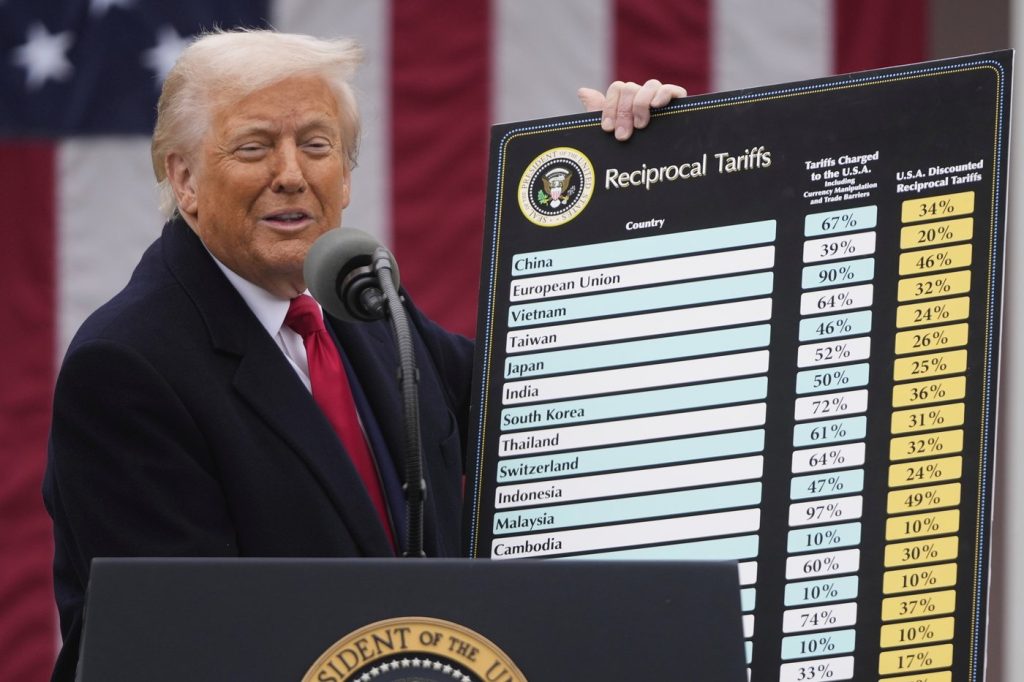In Washington, Donald Trump’s plan to reshape global trade encounters a significant legal challenge this week as a federal appeals court prepares to hear arguments regarding his authority to impose tariffs. Canada is on high alert, anticipating the U.S. president may implement higher tariffs, having previously threatened to do so if trade negotiations do not yield results by the specified deadline of August 1.
Trump's ultimatum has thus far led to only a limited number of trade frameworks with countries such as Japan, Vietnam, Indonesia, the Philippines, and the United Kingdom. However, he indicated that progress regarding an agreement with Canada remains insufficient. “We don’t have a deal with Canada, we haven’t been focused on it,” Trump asserted during a press briefing last week.
In a formal communication to Canadian Prime Minister Mark Carney, Trump warned of imposing a staggering 35 percent tariff on Canadian goods should a deal not materialize by the deadline. The White House clarified that these tariffs would not apply to goods compliant with the Canada-U.S.-Mexico Agreement on trade, providing some reassurance to Canadian officials.
Nevertheless, Canadian representatives have tempered expectations regarding the immediate realization of a new economic and security agreement. Carney stated, “We’ll use all the time that’s necessary,” signaling a commitment to thorough negotiations rather than hasty agreements.
On a broader scale, the implications of Trump’s tariff strategy are being scrutinized, particularly as a significant legal debate unfolds in the U.S. Court of Appeals for the Federal Circuit. A prior ruling from the U.S. Court of International Trade in May indicated that Trump lacks the authority to impose tariffs on nearly every country through the International Economic Emergency Powers Act of 1977 (IEEPA). This act traditionally grants the president emergency control over economic transactions, but Trump's application of it for tariffs is unprecedented.
The administration promptly appealed this ruling, focusing on the so-called “Liberation Day” and fentanyl-related tariffs. The appeal will address two distinct cases: one brought forth by five American small businesses challenging the global tariffs and another from 12 states opposing both the “Liberation Day” duties and the targeted tariffs related to fentanyl.
Legal scholars, such as George Mason University law professor Ilya Somin, argue that Trump's tariff imposition represents an egregious overreach of presidential power. Somin and his team at the Liberty Justice Center contend that the IEEPA does not permit the president to impose arbitrary tariffs without a defined emergency or extraordinary threat to U.S. security or economic stability. They claim that neither the fentanyl issue nor any trade deficit meets the criteria for such an emergency.
The White House maintains that its actions are legally justifiable under powers granted by both the Constitution and Congress, aimed at addressing “national emergencies of persistent goods trade deficits and drug trafficking.” The legal battle has attracted notable attention, with 18 amicus briefs filed in favor of the plaintiffs, while only two supported the Trump administration’s stance.
Brent Skorup, a legal fellow at the Cato Institute, critiqued the administration's rationale, stating that it relies on a vague statute to expand its powers in an unprecedented manner. He emphasized the need for separation of powers, arguing against the consolidation of authority within a singular presidential office.
The appeals court is predicted to expedite its ruling on the matter, but even if it determines against the imposed duties, immediate revocation may not follow. White House Press Secretary Karoline Leavitt expressed hope that the Supreme Court will ultimately resolve these issues conclusively.
In addition to the tariffs under scrutiny, Canada also faces levies on steel, aluminum, and automobiles, which Trump enacted under the Trade Expansion Act of 1962. The ongoing legal battles, which include at least eight lawsuits contesting the tariffs, highlight the contentious nature of Trump’s trade policies and their far-reaching implications for U.S.-Canada relations and global trade dynamics.











